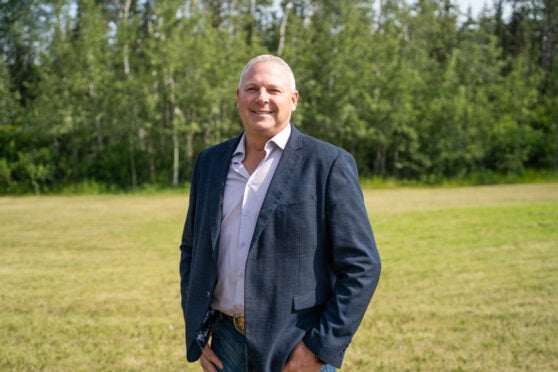The world is on the cusp of an energy revolution, and with the development of the Centre of Applied Energy and Environmental Sustainability (CAEES), Northern Lights College (NLC) is well-positioned as a leader in energy sector education.

Leading the way is the new Director of CAEES, David Jeffers. He was born in Kingston, Ontario, and like many people that ventured to northern BC, David had planned to be in the Peace Region for five years. Fate had other plans and now, 28 years later, he says he can safely say Fort St. John is his home.
David worked for several oil and gas companies during that time including Baker Hughes - Baker Petrolite and ChampionX before deciding CAEES was an excellent opportunity.
As the world becomes more reliant on technology from wi-fi and electric vehicles to data centres and AI a steady supply of energy is desperately needed for the future. David foresees the energy demand to go through the roof over the next 30 years.
"We don't have the capacity right now to do it in only oil and gas, So, we're going to need all forms of energy: hydrogen, geothermal, solar, wind, everything," he said. "Nobody wants to turn off their phones. Nobody wants brownouts. Nobody wants any of that. You need your energy, so it doesn't rest. Ever."
CAEES (pronounced "CASE") will work in partnership with industry and communities to develop the training and education necessary for alternative energy industries to thrive.
It will offer an expanded curriculum that encompasses both traditional trades in natural gas extraction and emerging technologies in clean energy, including renewable energy, energy efficiency, and carbon capture and storage.
By integrating cutting-edge technologies, environmental stewardship, and Indigenous knowledge into its programs, CAEES will ensure that its graduates are equipped with the skills and knowledge required to thrive in a rapidly changing energy sector.
The oil and gas industry has long been the "bread and butter" of Northeast BC, David said, but as the demand for energy has changed from 30 years ago, so has the mindset towards alternative sources.
Alternative energy sources have been in the works in the College region for some time now, with wind farms near Tumbler Ridge and Dawson Creek; a geothermal project in development up near Fort Nelson; and solar panels harvesting energy on the roof of the Trades Training Centre at the Dawson Creek campus.
While climate change has been the contributing factor to the switch from fossil fuels, David believes there's more to it than that.
"I think there is a real fundamental understanding of where we need to go in the future," he said. "Everything to do with our area, especially in Northeastern BC, we seem to strive on getting better. We just want to do things better and if we can do that it that starts to encompass a lot more."
As he settles into his new role, David is looking forward to working with NLC on this initiative.
"I think it's going to be a really fun group to work with people really enjoy being here and contributing in that sense to just building a better generation next time."










